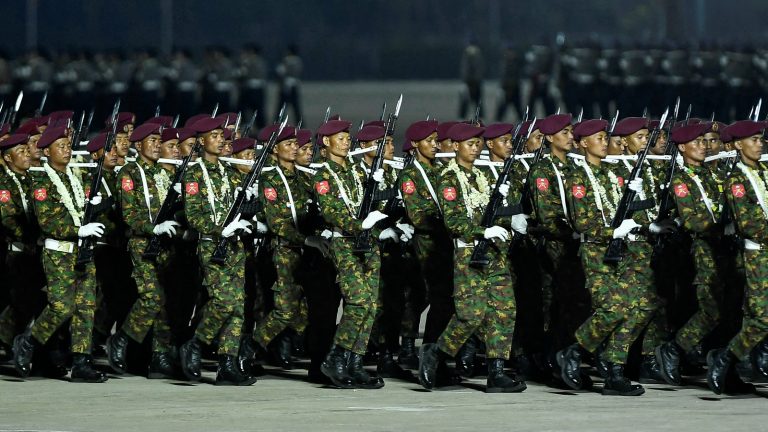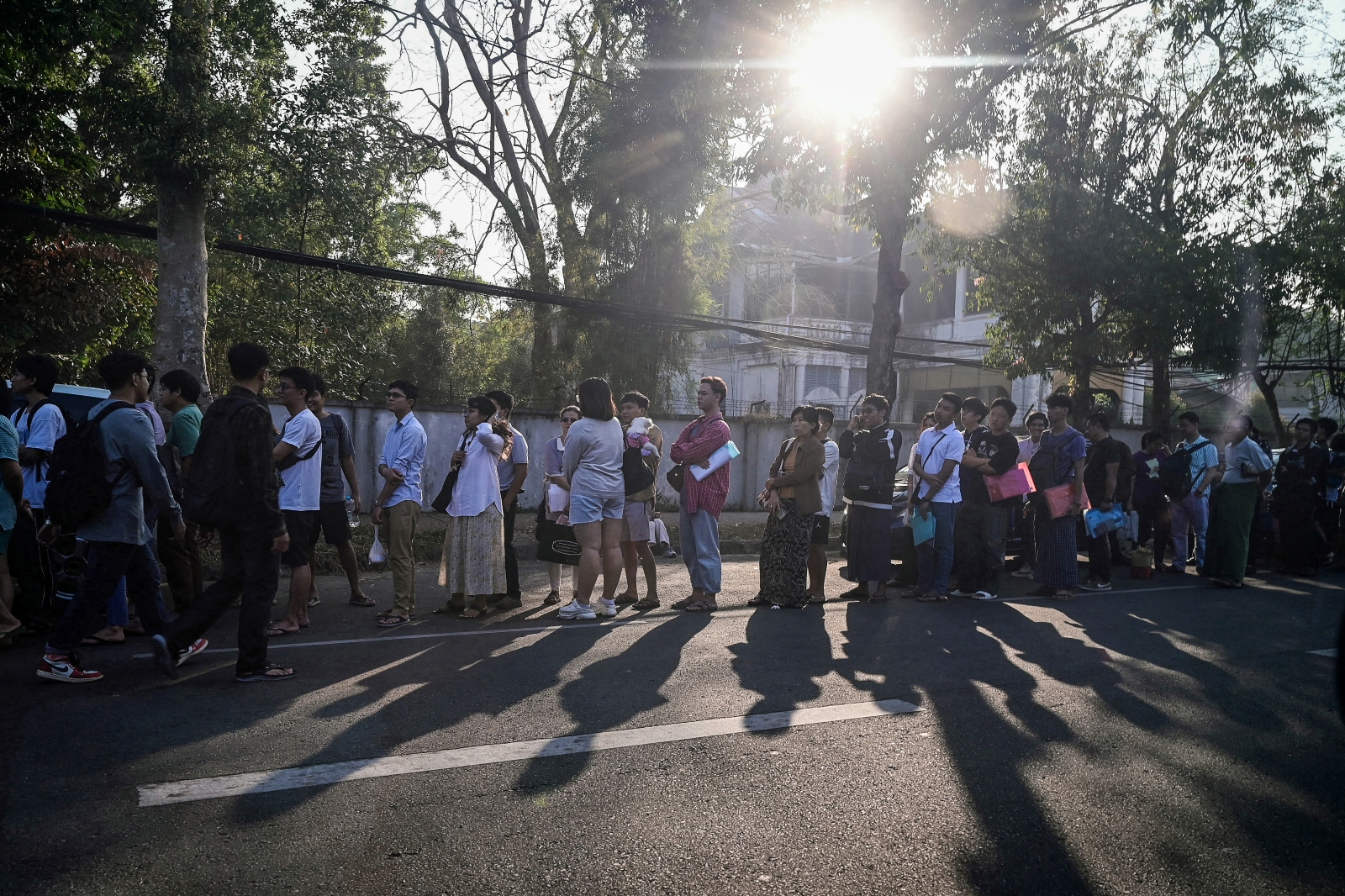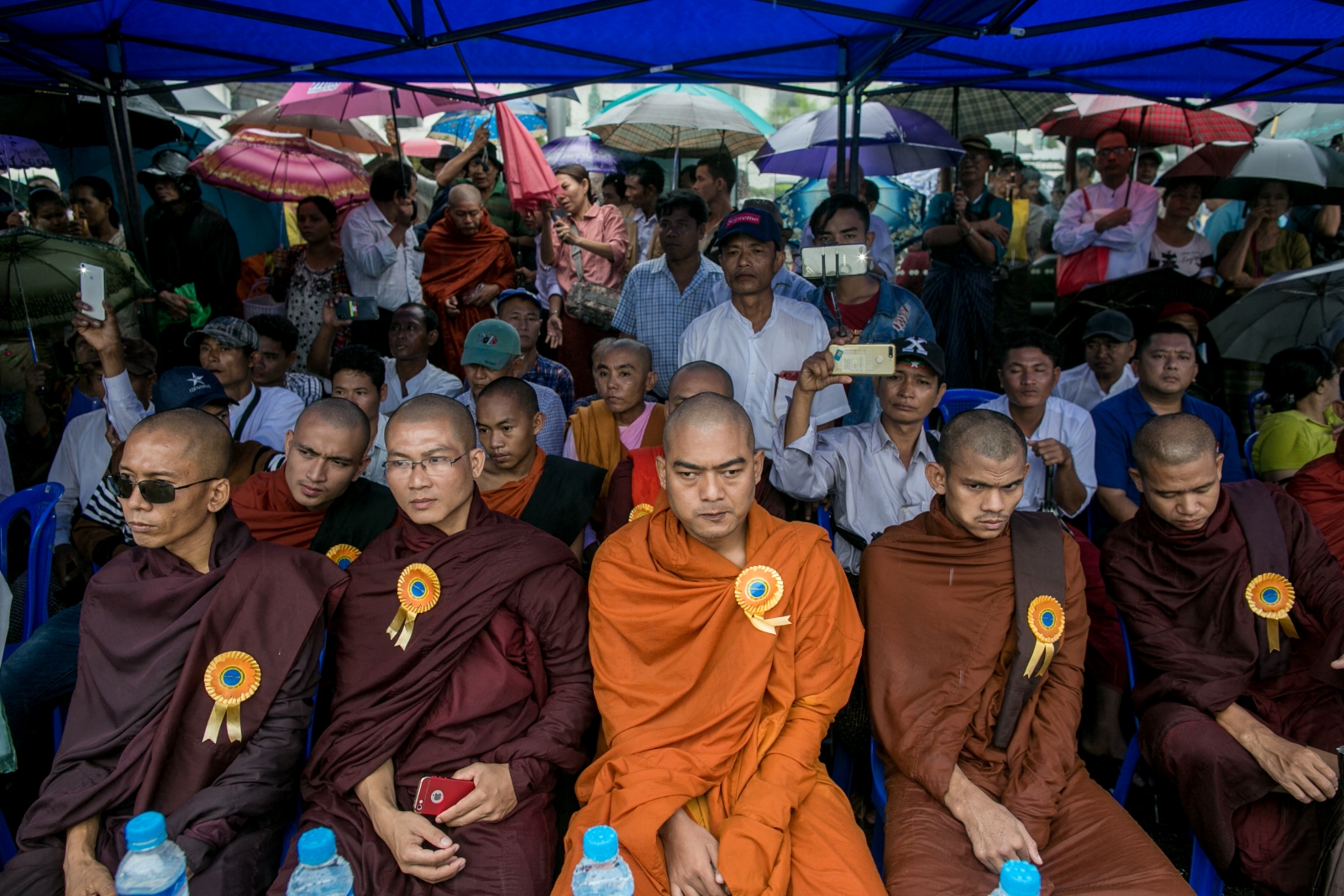Senior General Min Aung Hlaing has spoken of plans to transform the Tatmadaw into a “standard army” that members of armed ethnic groups would be welcome to join.
The visit last week by Karen National Union chairman General Saw Mutu Say Poe to the Defence Services Academy at Pyin Oo Lwin was a significant development in Myanmar’s history.
It was the first time since Independence in 1948 that the leader of an armed ethnic group had visited the DSA, the most prestigious of the Tatmadaw’s officer training schools. That the visit involved the leader of the group that had launched its rebellion on January 31, 1949, one year after Independence, and been involved in the world’s longest civil conflict until it signed a ceasefire in January 2012, added to its significance.
At the Union Peace Conference that began in Nay Pyi Taw last week, Tatmadaw Commander-in-Chief Senior General Min Aung Hlaing said the military was being transformed into a “standard army” that armed ethnic groups were welcome to join if they wished to serve the country under the Tatmadaw.
This week I would like to focus on key events in the history of the Tatmadaw and the challenge of absorbing about 100,000 members of ethnic armed groups into its ranks.
The military seized power in a coup d’etat in 1962 led by General Ne Win, who over the following years had various roles and titles, including chairman of the Revolutionary Council, commander-in-chief, president and chairman of the Burma Socialist Program Party. General Ne Win ruled the country for 26 years as a dictator and his economic mismanagement resulted in Myanmar being declared a least developed country by the United Nations in 1987.
Support more independent journalism like this. Sign up to be a Frontier member.
The military coup in September 1988 that crushed the national uprising saw power transferred from General Ne Win to Senior General Saw Maung, who in April 1992 was replaced as head of the junta and as Tatmadaw Commander-in-Chief by Senior General Than Shwe.
Senior General Than Shwe transformed the Tatmadaw into an institution dominated by Burmese Buddhists. Karen, Kachin, Chin, Shan, Mon, Rakhine and other non-Bamar were excluded as much as possible from the Tatmadaw, especially high-ranking positions. This discrimination has resulted, about 20 years later, in there being almost no ethnic minorities represented in the middle and upper ranks of the Tatmadaw.
This is not a one-sided accusation. It was admitted at the negotiating table by a Tatmadaw general when discussions began in the national peace talks launched by President U Thein Sein’s government. The general also said the Tatmadaw had ended its policy of discriminating against members of ethnic minorities.
The creation by Senior General Than Shwe of a Bamar Buddhist-dominated Tatmadaw instead of a Union Tatmadaw has created obstacles to building peace with the ethnic minorities.
It was also Senior General Than Shwe who – alarmed by the scale of popular support for the national uprising in 1988 – ensured that the military had a greater grip on the bureaucracy. The military served not only for the defence of the country but also to produce officers for the civil administration and many of them were trained at the Defence Services Academy. Before 1988, DSA accepted an annual intake of about 150 trainees but after the uprising it was sharply increased. Young officers trained to serve in the military were transferred to positions throughout the civil service. This has resulted in a lowering of the capacity of the civil service.
Senior General Min Aung Hlaing has said he is trying to transform the Tatmadaw into a “standard army”. It is not yet known if he is also trying to transform it into a Union Tatmadaw. Politically, he has retreated one step back by acknowledging the election result and pledging to cooperate with an NLD government.
The political dialogue that began in Nay Pyi Taw last week is part of the process that saw the government and eight armed groups sign a national ceasefire accord in October. If a settlement emerges from the political dialogue, it will pave the way for ethnic armed groups to serve in a Union Tatmadaw. But don’t expect that to happen any time soon.






